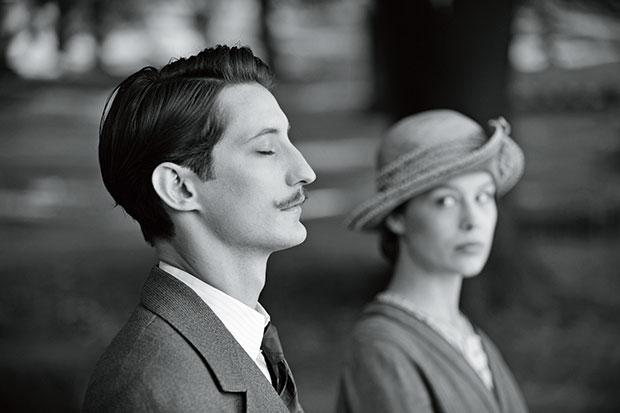Frantz begins in provincial Germany in 1919. We’re in a quiet, handsome, outwardly respectable small town, but it doesn’t take long to see how much of the place has been ruined by the recent war. In the opening scene a young, elegantly dressed woman walks through the busy market square. She ignores the crowds and the horse-drawn carts to head straight to the graveyard, where she lays flowers at the headstone of her fiancé, killed in battle just before peace was declared.
The war dead are the town’s most attention-demanding constituents; the film is even named after one of them. A visit to the doctor prompts a howl of grief from the medic over his fallen son. The arrival of a young Frenchman stirs speculation over the German deaths he was responsible for. This is a place where most roads – not just the one tread by the woman on her way to the cemetery – lead to painful remembrance.
The woman’s name is Anna, and her fiancé was Frantz, fatally shot in the dying days of the war. Anna (a quiet marvel of a performance from German actress Paula Beer) now lives with Frantz’s parents, a broken-hearted elderly couple. Anna has boxed in her sorrow through joyless domestic routine. When a middle-aged neighbour proposes marriage, suggesting it will help her forget Frantz, she reacts with puzzlement: why would she want to do that?
But into this traumatised situation comes Adrien, a mysterious Frenchman. Anna finds him weeping over Frantz’s grave and he admits to being friends with him from his days as a student in Paris.
Frantz’s parents are warmed by his memories of their son, and soon Anna is drawn to this tall, gaunt, melancholy man of her own age (played by Pierre Niney, who brings a whiff of courtly glamour from his role as designer Yves Saint Laurent in the recent biopic). Slowly, through her encounters with Adrien, she comes to life again.










